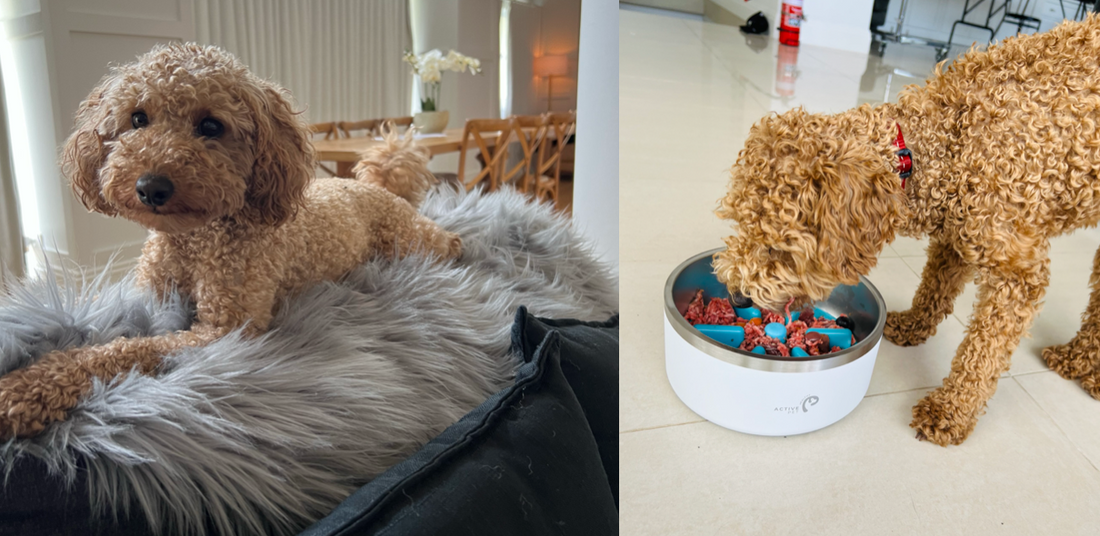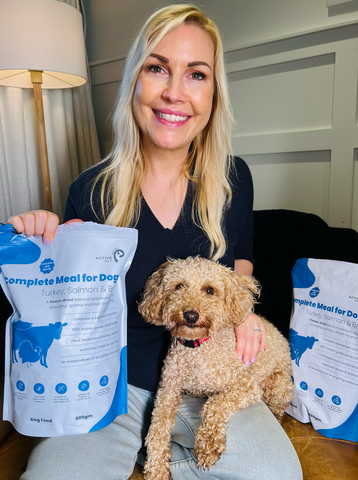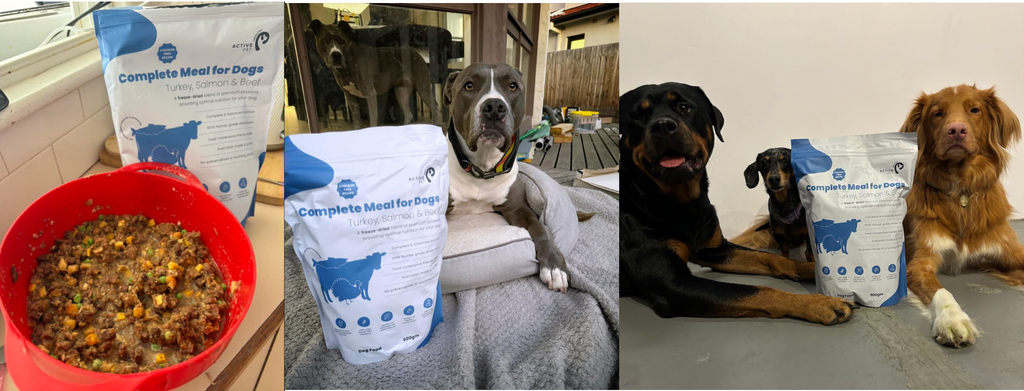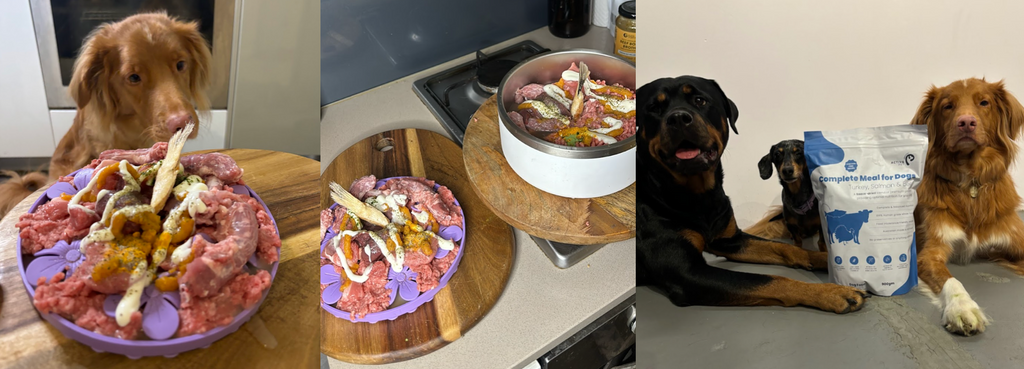
Toy Poodle Pups - Grooming & Care Tips
Welcome, to the ultimate guide on keeping your toy poodle healthy and happy.
Toy poodles are intelligent, charming dogs. But, they need the right grooming and care to thrive. This article shares tips to maintain your toy poodle’s well-being and keep them as your favourite furry friend.
Key Takeaways:
- Regular grooming is crucial for toy poodles' coat health and overall well-being.
- Understanding toy poodles' temperament and exercise needs is essential for their happiness.
- Grooming essentials include brushing, bathing, and nail trimming to keep your toy poodle pristine.
- Stay up-to-date with the latest toy poodle haircut styles and grooming trends.
- Provide dental care to maintain your toy poodle's healthy teeth and gums.

Understanding Toy Poodles: Size, Temperament, and Exercise Needs
Toy poodles are well-loved for their smarts, wonderful nature, and small size. They are the tiniest poodles, usually weighing 4-6 pounds and standing just 10 inches high. This small shape is great for city living and when you travel.
Don't let their size fool you, toy poodles are full of life and energy. They love to play and are very friendly. This makes them ideal for both families and anyone living on their own. They show lots of love and stay loyal to their owners.
Exercise is key for toy poodles to stay happy and healthy. Even though they are small, they need to move around quite a bit. They enjoy walks, playtime, and activities that make them think. This keeps them from gaining too much weight.
Toy poodles need daily walks and fun with toys to stay active. Things like puzzle toys are great for their brains and they love it. Remember, they should avoid rough activities because they are very fragile.
"Toy poodles may be small, but their personalities and love for life are huge. Regular exercise and playtime keep them focused, prevent problems, and keep them happy."
Size, Temperament, and Exercise Needs Summary:
| Aspect | Toy Poodle Characteristics |
|---|---|
| Size | Small, weighing between 4-6 pounds and standing about 10 inches tall at the shoulder |
| Temperament | Playful, friendly, gentle, affectionate, and devoted to their owners |
| Exercise Needs | Moderate exercise need, requiring daily walks, playtime, and mental stimulation |
It's important to know what toy poodles need in terms of size, nature, and activity. Giving them the right exercise and play helps them stay healthy and happy.
Sharing your life with these cheerful, loving dogs means a fun and lasting bond.
Grooming Essentials for Toy Poodles
Grooming keeps your toy poodle healthy and bonds you two. We'll cover brushing, bathing, and nail trimming in this guide.
Brushing
To keep your toy poodle’s coat looking great, brush it often. A slicker or pin brush works well to remove dirt. Be gentle, especially on the ears and belly.
Bathing
Bathe your toy poodle with a dog shampoo for sensitive skin. First, brush to remove tangles. Use lukewarm water and remember to rinse well. Then, dry with a towel or low-heat blow dryer.
Nail Trimming
Trim your poodle’s nails to keep them healthy and walking comfortably. Use clippers made for dogs, and be careful not to cut the quick. If in doubt, ask a groomer or vet for help.
Include these steps in caring for your poodle. This way, your pet’s coat remains lovely. Grooming also helps you keep an eye on their health and strengthen your friendship.
| Grooming Essential | Recommended Tools |
|---|---|
| Brushing | Slicker brush or pin brush |
| Bathing | Mild dog shampoo, towel, or low-heat blow dryer |
| Nail Trimming | Dog nail clippers or grinder |
Toy Poodle Haircuts: Styling Tips and Trends
Toy poodles are known for their beautiful coats. It's important for their owners to keep them looking good. We'll look at different haircut styles for toy poodles. And we'll see what's hot right now, so your dog stands out.
Popular Toy Poodle Haircut Styles
Toy poodles have so many cut options. Let's check out some trending styles:
| Style | Description |
|---|---|
| The Puppy Cut | A classic style that keeps the hair short and even all over the body, resembling a puppy-like appearance. |
| The Teddy Bear Cut | A charming style that leaves the fur longer, creating a fluffy and adorable teddy bear look. |
| The Continental Cut | A bold and regal style with pompoms on the legs, face, and a full, flowing tail. |
| The Lamb Cut | A cute and unique style that trims the hair closely, giving the toy poodle the appearance of a fluffy little lamb. |
There are many more styles to pick from. Your choice should make both you and your poodle happy.
Styling Tips and Recommendations
Here's how to keep your toy poodle's hair looking great:
- Regular Brushing: Brush daily to avoid matting and keep the coat smooth.
- Professional Grooming: For special cuts, take your toy poodle to a groomer skilled in small breeds.
- Accessorise: Use bows, bandanas, or stylish clips to highlight the haircut.
- Consider the Climate: Cut the hair based on the weather. Shorter cuts for summer, long for winter.
Dental Care for Toy Poodles: Tips for Healthy Teeth and Gums
Looking after your toy poodle's teeth is vital for their health. Healthy teeth and gums let them eat well and avoid tough dental problems later. Here are key ways to care for their teeth:
1. Regular Toothbrushing
Brushing your toy poodle's teeth is crucial. Use a dog toothbrush and toothpaste. Make toothbrushing fun for your poodle. Aim for daily brushing, but a few times a week is also good.
2. Dental Chews and Toys
Giving your poodle dental chews and toys is a great idea. Choose items that care for teeth and gums. These can reduce plaque, tartar, and keep gums healthy.
3. Regular Dental Check-ups
Your toy poodle should visit the vet for dental checks like you do. The vet can spot and treat teeth problems early. This keeps their mouth healthy.
"Looking after your poodle's teeth now is key to avoid problems later. Good dental care means a happier, healthier pet!"
Follow these tips, and your toy poodle will enjoy bright, healthy teeth. Remember, starting care early is best. Your poodle's smile will show how much they appreciate it!
| Benefits of Dental Care for Toy Poodles | Tips for Dental Care |
|---|---|
| 1. Prevents dental plaque and tartar buildup | 1. Use a dog-specific toothbrush and toothpaste |
| 2. Reduces the risk of gum disease and tooth loss | 2. Incorporate dental chews and toys into their routine |
| 3. Helps maintain fresh breath | 3. Schedule regular dental check-ups with your vet |
Toy Poodle Nutrition: Feeding for Optimal Health
Proper nutrition is vital for toy poodles' health and well-being. These tiny, spirited dogs need a balanced diet to match their energy. The right food keeps them healthy and active.
Choosing the correct diet for your toy poodle is crucial. Look for a high-quality, small breed dog food like Healthy Active Pet. It is a hypoallergenic raw option with turkey, salmon, and beef organs. This food is rich in protein, good fats, vitamins, and minerals.
You can see our freeze dried dog food here

Feeding Recommendations:
- Giving small, regular meals suits your toy poodle's quick metabolism.
- Adjust the food amount based on the package instructions and your poodle's specifics.
- Stick to a regular feeding time to avoid overeating.
- Always have fresh water available for your poodle.
It's great to add healthy snacks to your poodle's diet. Just make sure they are for small dogs and are safe.
For top health, toy poodles need the right nutrition. Healthy Active Pet, a hypoallergenic raw food, is excellent for them.
Focus on the diet of your toy poodle for a long, healthy life. Your vet can help with choosing what's best. A well-fed toy poodle is a joyful, lively friend.
You can see our freeze dried dog food here

Toy Poodle Training: Essential Commands and Tips
Training a toy poodle is vital for their happiness and health. By teaching them key commands and using positive methods, you'll have a well-behaved buddy. Here are tips to start you off right.
1. Start with the basics
Begin with easy commands like sit, stay, and come. Choose a calm place to train. Use treats and praise for good work. Consistency is a must. Repeat the commands until they get it right.
2. Use positive reinforcement
Focus on rewarding your poodle for doing well. Use treats, kind words, or a stroke as rewards. This makes them want to please you. Positive experiences with commands help them learn faster.
3. Be patient and consistent
Training needs patience. Your poodle might not learn right away. But, with steady teaching, they will. Keeping calm is important. Stick to your training every day.
4. Socialize your toy poodle
Socializing is key for poodles. Let them meet different people and pets. This makes them more confident and stops anxiety or bad behavior. Remember, ensure that your poodle is vaccinated before they meet others.
5. Address common behavior issues
Poodles can have problems like barking too much or fear of being away from you. Deal with these issues early. Training and rewards can help. If you need help, consider a professional trainer for your poodle to be happy and well-behaved.
Follow these tips to build strong trust with your poodle. Training should be enjoyable for you both. It's about more than just learning; it's a time to bond as well.
| Essential Commands | Description |
|---|---|
| Sit | Teach them to sit when told. It's useful and keeps them well-behaved. |
| Stay | Training them to stay has safety benefits. It keeps them safe in risky spots. |
| Come | Coming when called is crucial for safety. It helps you prevent them from danger. |
| Leave it | Training them to ignore things is for their safety. It stops them from eating bad stuff or getting hurt. |
Toy Poodle Health: Common Issues and Preventive Care
Keeping your toy poodle healthy is very important. Even though toy poodles are usually sturdy, they can face health problems. By focusing on preventive care, your poodle can stay happy and healthy.
Common Health Issues
Toy poodles, being small dogs, are susceptible to certain health issues. It's key to know about these and act early to prevent or handle them. Common issues include:
- Patellar Luxation: The kneecap dislocating. Check-ups with your vet can catch this early.
- Progressive Retinal Atrophy (PRA): A genetic eye disorder that can lead to blindness. Regular eye checks are crucial.
- Collapsed Trachea: Their windpipe can become narrow, causing breathing issues. Use a harness instead of a collar.
Preventive Care
Preventive care is key to your poodle's health. Here's what you need to do:
- Vaccinations: Keep your poodle's vaccinations current. This protects against diseases and makes their immune system stronger.
- Parasite Prevention: Protect your poodle from fleas, ticks, and parasites. Use preventives and regularly check for infestations.
- Regular Veterinary Check-ups: Visiting the vet often keeps your poodle healthy. Early issue detection and expert advice on care is very important.
- Proper Nutrition: A balanced diet is vital. See our nutrition book here

By being proactive and taking these prevention steps, you give your toy poodle the best care. This will lead to a long, happy life together.
Toy Poodle Socialization: Building a Happy and Well-Adjusted Pup
Socialising your toy poodle is key for its happiness. By introducing them to new people, animals, and places, they grow confident and friendly. Here's how you can help your toy poodle become well-adjusted:

Introduction to New Experiences
Take your toy poodle to places like parks and busy streets. This makes them get used to different sounds and smells. With time, they'll feel more comfortable in new spots. Just remember, start small and slowly make the visits longer to not stress them out.
Positive Interactions with People
Let your toy poodle meet all kinds of people. From friends and family to new faces, make sure these meetings are always fun. Use treats and gentle pets to show them people mean good things. This builds their trust and makes them enjoy being around others.
Playdates with Other Dogs
Set up playdates for your toy poodle with other friendly dogs. This helps them pick up on social rules and manners. Always keep an eye on them to make sure everyone's having a good time and being nice to each other.
Training and Obedience Classes
Signing up your toy poodle for classes is a great idea. It's a chance for them to meet and play with other dogs in a safe place. They get to learn rules and good behaviour from expert trainers. This also helps you handle any small issues that come up.
Remember, socializing your toy poodle is a long-term thing. Keep at it gently and with lots of fun. Your poodle will get better at making friends and be a joy to be around. This way, you both will have a happy and strong bond.
Toy Poodle Playtime: Engaging Activities and Toys
Engaging your toy poodle in playtime is important for their health. It gives them exercise, keeps their minds active, and makes them happy. It's good for their overall well-being.
Let's look at fun activities for your toy poodle:
1. Interactive Puzzle Toys
Try interactive puzzle toys to challenge your dog's brain. These toys hide treats that your dog has to find. It keeps them entertained and sharpens their problem-solving skills.
2. Hide and Seek
Hide a favorite toy or treat and have them find it. It's fun for both of you and great for mental and physical exercise. This game uses their natural sense of smell and hunting instincts.
3. Fetch
Most toy poodles enjoy playing fetch. You can use a ball or a soft toy for this game. It helps them stay nimble and fits their love for chasing things.
4. Tug-of-War
Tug-of-war is a lively game for toy poodles. Just be sure the toy you use is right for small dogs. And always play safely with clear rules.
Always watch your toy poodle when they play. This avoids any unwanted accidents and keeps them safe.
Adding these games to your poodle's playtime will keep them happy and healthy. Pick toys that are safe and change them up sometimes. This way, they won't get bored.

Conclusion
Owning a toy poodle brings a lot of joy and rewards for pet owners. In this article, we've highlighted key grooming and care tips for these dogs to be their best. With these suggestions, your pet can lead a healthy, cheerful life.
Toy poodles need regular grooming like brushing, baths, and nail trims to keep their coat and health in check. Don't forget about their dental care, nutrition, and staying active. Training and meeting other dogs are also key for a happy and well-behaved poodle.
It's up to us to look after our toy poodles with love and care. Use the advice shared here to make sure your dog feels well-cared for. Enjoy the advantages and duties that come with your toy poodle. Make the most of their bright, loving nature.
FAQ
Are toy poodles a hypoallergenic breed?
Yes, toy poodles are known as hypoallergenic. Their wavy, non-shedding hair reduces allergens. This makes them a great choice for people with allergies.
How often should I groom my toy poodle?
Groom your toy poodle every 4-6 weeks. This means they need baths, hair brushing, and trimming. It helps keep their coat neat and avoids tangles.
What type of dog food is best for toy poodles?
Feed your toy poodle a balanced diet. You can pick from hypoallergenic, raw, or freeze-dried food. These are made specifically for toy poodles. You can see our freeze dried dog food here
How much exercise do toy poodles need?
Toy poodles are full of energy and need daily workouts. They should get 30 minutes to an hour of play. This can be playing in a yard or going for walks.
What is the average lifespan of toy poodles?
The average life span of toy poodles is 12 to 15 years. With the right food and care, they can live even longer. Some reach over 15 years.
Can toy poodles be left alone for long periods?
Toy poodles love company and can get unhappy alone. If you're gone for long, think about a pet sitter or daycare. This keeps them active and happy.
Are toy poodles easy to train?
Toy poodles are very smart and like to make you happy. They are usually easy to train. Positive rewards are the best way to teach them.
Do toy poodles get along well with children and other pets?
Toy poodles can make good friends with kids and other animals. Always teach them to play nicely with children. This is for everyone's safety.
How often should I take my toy poodle to the vet?
Ensure your toy poodle's health with vet visits. They should see the vet each year for a check-up, shots, and dental care. A vet can suggest a custom plan for your dog.




